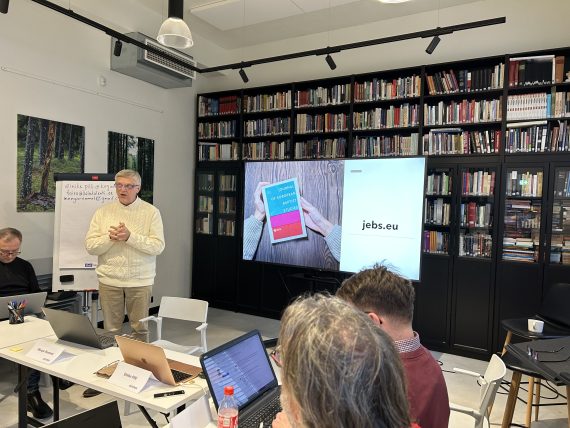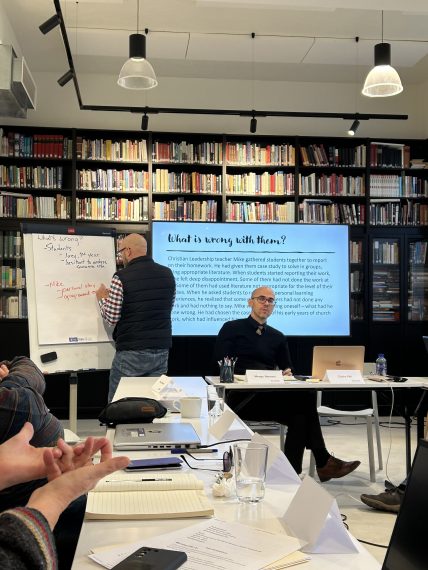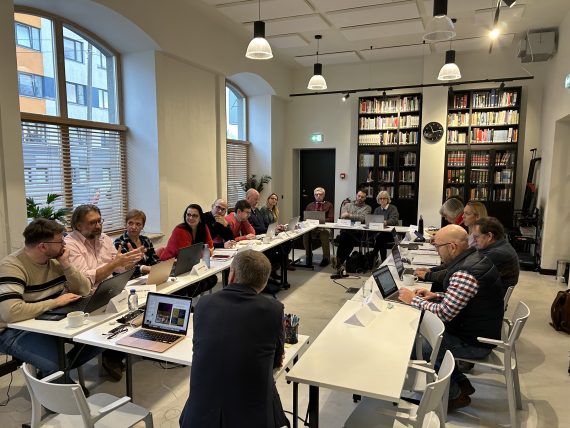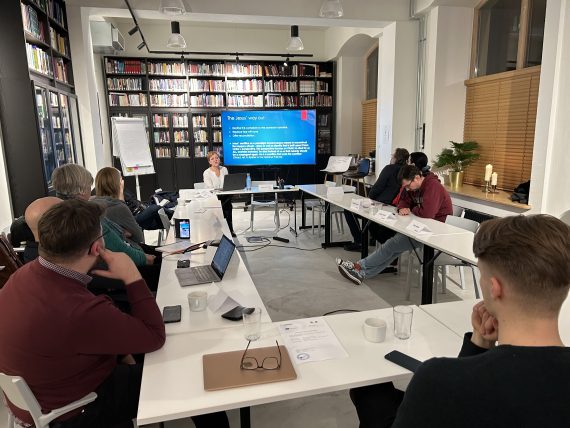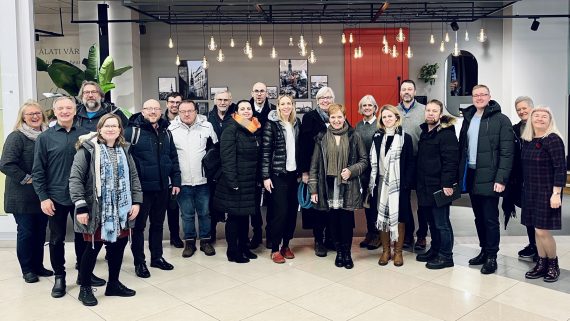Problem-based learning and mentoring: two student-centred practices for holistic learning and Christian witness
During the last week of November, four theological schools from different parts of Europe gathered to be inspired, learn, exchange practices and connect in the beautiful city of Tallinn, Estonia.
A total of 20 participants in four teams from the Evangelical Theological Seminary, Osijek, Croatia; The Department of Theology and Catechetics, Matej Bel University, Banská Bystrica, Slovakia; LCC International University, Department of Theology, Klaipėda, Lithuania; and the host institution, Estonian Free Church Theological Seminary, Tallinn, Estonia worked through the programme prepared by the Meego Remmel (PhD) and Einike Pilli (DTh) as main teachers and facilitators.
The programme was created with an aim to discuss and apply two important student-centred practices – mentoring and problem-based learning. These methods were dealt with both theoretically and practically with a room for sharing experiences, questions and best practices of participating theological schools. The emphasis was on dialogic and holistic approach of education while the main themes were dialogue as a characteristic of holistic student-centred approach. Innovation in (theological) education, problem-based learning – reason, practice and application, academic, group and personal mentoring, as well as holistic approach to human life and relationships in academic context. The schools were also sharing best student-centred practices and discussed the possibilities and challenges of academic mentoring and PBL in their own contexts.
Two evenings were devoted to presentations by the guest schools. While during the first, on Tuesday evening, dr. Anne-Marie Kool and dr. Benjamin Uhrin from UMB Slovakia shared about ways to bridge the gap between mission theology and mission practice, during the second, on Thursday, Julijana Mladenovska-Tešija, MTh/drs from ETS Osijek, Croatia shared her research about grass-root peace activities of believers and non-believers during the Homeland war in Croatia (1991-1998). Both presentations were open for the general public and followed by vivid discussions about the role churches and theology institutions play in the world today addressing the European context, history and building role of churches on the continent, as well as new trends and challenges such as wars and migrations.
The programme was structured in a way to allow flexible learning pathways for the participants. During the sessions they were able to analyse the possibilities and challenges in the practice of academic mentoring and problem-based learning in their respective theological schools, understand the methodology of problem-based learning and ways to apply it in theological education, understand the concept of mentoring and its purpose in the academic context and discuss with their partners ways to apply the best practices in supporting students’ development as well as the value of holistic approach to student centred learning, including mentoring.
The five days were also used as a possibility to explore new ideas about the possibilities of future co-operation between the schools: participating organisations gained first-hand experience in international co-operation and worked on ways to strengthen their capacities by producing high-quality innovative deliverables.
We look forward our next meeting in Croatia!
Text: Julijana Mladenovska-Tešija, MTh/drs
Evanđeosko teološko veleučilište / Evangelical Theological Seminary (Osijek, Croatia)
Photos: Einike Pilli

